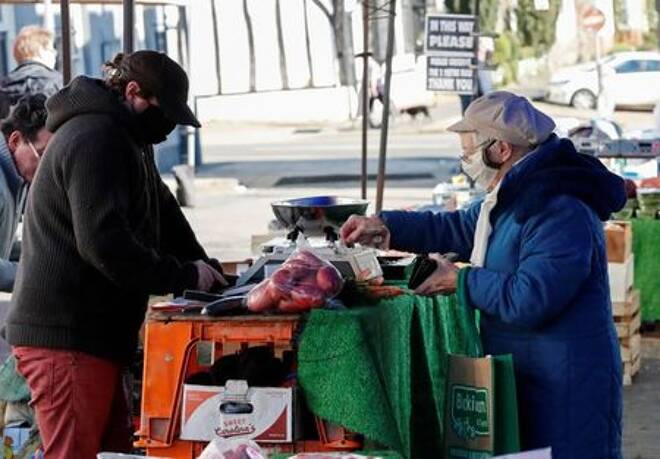Advertisement
Advertisement
UK Inflation Edges up as COVID Price Hit Begins to Ease
By:
LONDON (Reuters) - British inflation picked up in March as global oil prices rose and COVID-driven discounts on clothing were lifted, it is expected to carry on climbing as the economy re-opens from lockdown.
By David Milliken and William Schomberg
Consumer price inflation rose to 0.7% in March from 0.4% in February, just below the average forecast of 0.8% in a Reuters poll of economists, according to official figures published on Wednesday.
“The rate of inflation increased with petrol prices rising and clothes recovering from the falls seen in February,” Office for National Statistics official Jonathan Athow said.
British inflation is forecast to rise in the coming months, due to an increase in regulated household energy bills in April, higher global oil prices and comparisons with prices a year ago when COVID lockdowns caused demand to slump.
Fuel prices in March showed their biggest annual increase since January 2020. Clothing and footwear prices rose by 1.6% on the month after store closures caused by lockdown rules had caused discounting in February, the biggest increase since 2017 for the time of year. Clothing and footwear prices were still 3.9% lower than a year before, and food prices were 1.4% down.
The Bank of England forecast in February that inflation would reach 1.9% by the end of 2021 but many economists now expect it will exceed its 2% target before then.
In the medium term, the BoE sees less upward pressure on inflation because of weakness in the job market, which it expects to persist even after the economy returns to its pre-pandemic size which it has forecast will happen early next year.
“Unlike the U.S., where we expect inflation to be relatively sticky above 2%, we think the UK story is likely to be less exciting. Partly this is because we think the pent-up demand story may be less pronounced than in the States,” James Smith, an economist with ING, said.
Financial markets see about a 50% chance of a quarter-point increase in interest rates by the Bank of England by the end of next year, but many economists think it could take longer for the BoE to move.
BoE Chief Economist Andy Haldane in February likened inflation to a “tiger” that could be roused easily. But his view is not widely shared by other members of the Monetary Policy Committee, from which he will step down in June.
Wednesday’s data did show some signs of inflation pressure in the pipeline.
The ONS said prices charged by manufacturers rose by 1.9% in the year to March, the highest in nearly two years, and the prices they paid for their inputs jumped by almost 5.9%, the most since September 2018.
(Reporting by David Milliken; Editing by William Schomberg)
About the Author
Reuterscontributor
Reuters, the news and media division of Thomson Reuters, is the world’s largest international multimedia news provider reaching more than one billion people every day. Reuters provides trusted business, financial, national, and international news to professionals via Thomson Reuters desktops, the world's media organizations, and directly to consumers at Reuters.com and via Reuters TV. Learn more about Thomson Reuters products:
Advertisement
